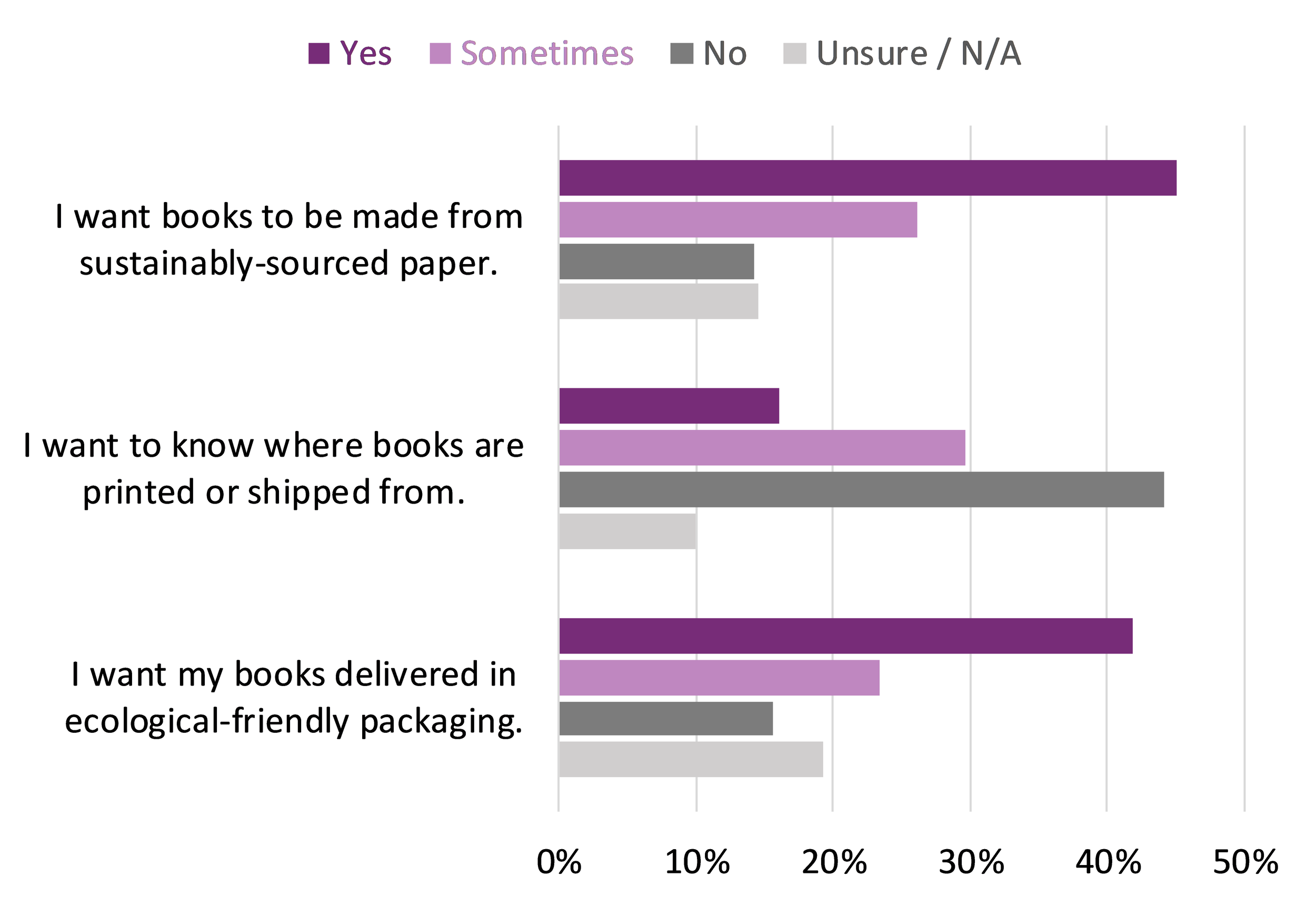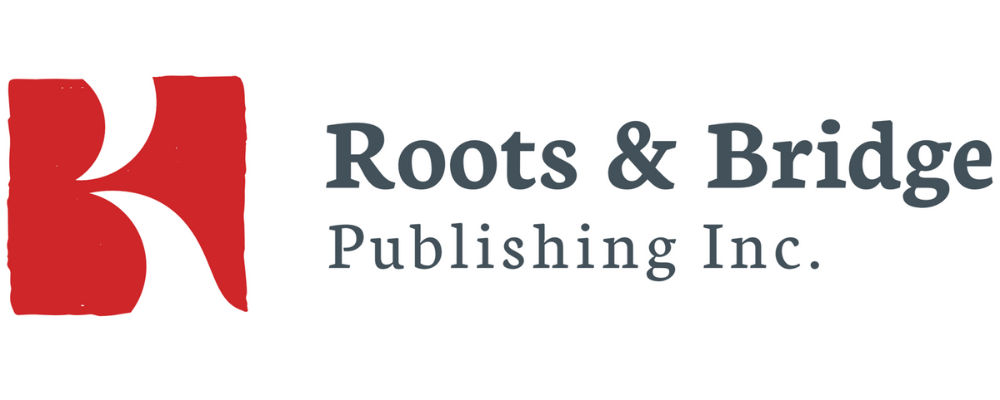There’s nothing like unpredictable and severe summer weather to make us turn our attention back to climate change and the question of environmental sustainability in the book industry.
Last year, we explored the impact of the Canadian book supply chain on the environment. This time around, we’re going to take a closer look at what Canadian book consumers and readers have to say about it.
Does the environmental impact of the book industry really matter to them? Do they care if a book is printed and shipped sustainably or not?
The data we’re sharing today comes from SalesData, our national sales tracking service for the Canadian English-language trade book market, as well as two of our consumer surveys — the Canadian Leisure & Reading Study 2021 and new data we’re collecting for the 2022 edition of the Canadian Book Consumer Study.
Caring about environmental sustainability
In collecting data for the first six months of this year for our 2022 edition of the Canadian Book Consumer Study, we’ve found that the environmental impact of the book industry matters to 56% of Canadians overall and specifically to 69% of Canadian book buyers and 66% of Canadian library book borrowers.
To get more specific, in surveying for our Canadian Leisure & Reading Study 2021, we asked Canadian print readers what they thought of three environment-focused statements about the print books they read:
I want books to be made from sustainably-sourced paper.
I want to know where books are printed or shipped from.
I want my books delivered in ecological-friendly packaging.
For the most part, Canadian print readers agreed or sometimes agreed with each of these statements, as shown in the graph below.
Canadian readers want books made from sustainably-sourced paper
Overall, 71% of Canadian print readers agreed or sometimes agreed with the statement “I want books to be made from sustainably-sourced paper.” This percentage only increased for print readers who also read ebooks or audiobooks, at 74% and 77% respectively.
Having books made from sustainably-sourced paper mattered the most to readers ages 18 to 29 (77%) and to readers who read on a daily basis (74%). An equal 74% of both Canadian book buyers and Canadian library book borrowers agreed or sometimes agreed with this statement.
Canadian readers want to know where books are printed or shipped from
Altogether, 46% of Canadian print readers agreed or sometimes agreed with the statement “I want to know where books are printed or shipped from.” Just like for the previous statement, this percentage increased for print readers who also read or listened to books in digital formats, coming in at 51% for print readers who also read ebooks and 57% for print readers who also listened to audiobooks.
This statement also mattered the most to readers ages 18 to 29 (56%) and to readers who read every day (49%). Here, Canadian book borrowers are slightly more likely to want to know where books are printed or shipped from compared to book buyers, at 50% and 49% respectively.
Canadian readers want books delivered in ecological-friendly packaging
When it comes to wanting books delivered in ecological-friendly packaging, 65% of Canadian print readers agreed or sometimes agreed. Consistently, print readers who also read or listened to books in a digital format had higher percentages of agreement, at 69% for those who also read ebooks and 70% for those who also listened to audiobooks.
Just like for the previous two statements, ecological-friendly packaging mattered the most to readers ages 18 to 29 (78%). While 67% of readers who read daily want books delivered in ecological-friendly packaging, this statement actually saw its highest agreement rate with print readers who read one book a month (68%). Between Canadian book buyers and book borrowers, 70% of book buyers want books delivered in ecological-friendly packaging, slightly more than 69% of book borrowers.
Reading about the environment
Canadian readers and book buyers' interest in the environment translates into book sales, as BookNet Canada’s Monique Mongeon and Hannah Johnston showed earlier this year in their Tech Forum webinar Emerging trends: Book subjects on the move in the Canadian market. Topics related to the environment have seen more sales than ever before in recent years.
As shown in the graph below, many Non-Fiction environmental subjects saw increases in sales from 2020 to 2021, including:
Non-Fiction / Life Sciences / Botany — up 1,757%;
Non-Fiction / Earth Sciences / Meteorology & Climatology — up 1,067%;
Non-Fiction / Science / Global Warming & Climate Change — up 137%; and
Non-Fiction / Life Sciences / Biology — up 36%.
Looking more top-level, all Science subjects sold 35% more in 2021, with Nature subjects also seeing a 20% increase in sales.
Non-Fiction subjects aren’t the only titles related to the environment to see increases among Canadian book buyers. Environmental fiction, under Fiction / Nature & The Environment, saw an increase of 680% in 2021.
Juvenile and Young Adult subjects are also seeing an uptick in sales for titles about the environment. While sales of Juvenile Non-Fiction / Science & Nature titles were flat year over year, sales of Young Adult Non-Fiction / Science & Nature titles increased 361% in 2021. In terms of Fiction subjects for young readers, environment-themed titles were up 26% in 2021 for both Juvenile and Young Adult Fiction subjects combined.
As Canadians demand more transparency, sustainable action, and environmental discussion for the books they buy, borrow, and read, the Canadian book industry will hopefully work to meet this response.
















Tips on how to avoid display issues caused by rogue <div> tags.